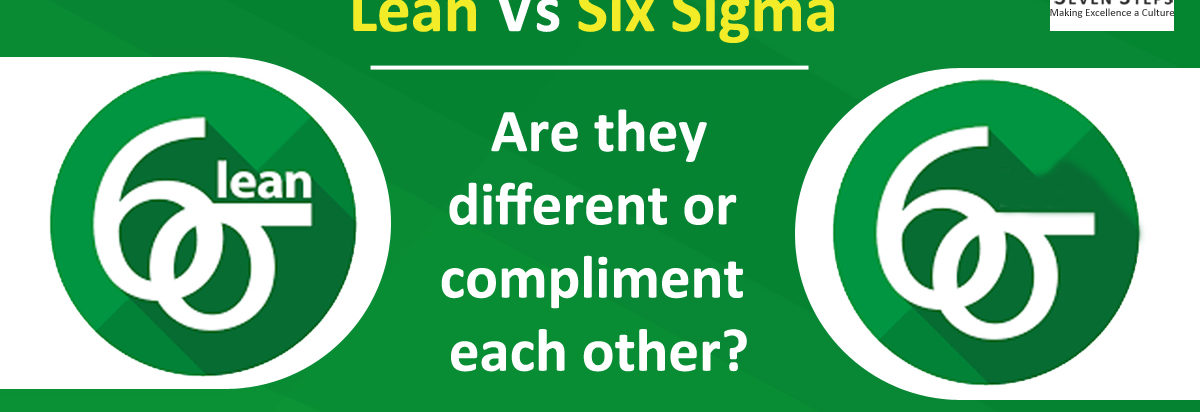
In the rising complexities of globalized business, if you are struggling to improve business operations and seeking a long haul business success, your business has left out with no option other than to optimize the business performance through analytical problem-solving approach and also to adopt proven breakthrough methodologies that multiply your ROI.
Are you in a struggle to optimize your business processes, cost and delivery? If so, it’s now high time for your business to adopt the most effective organization process improvement methodologies to meet your business goals and increase profits within this highly competitive business market.
If you are wondering what’s next?
Here’s your business game changer!
Can Lean and Six Sigma be an invaluable resource to achieve your business goals and improve the bottom line?
The answer is, Of course, “Yes”. But how? Let’s see here!
Lean and Six Sigma do both have similarities and differences. There are debates also as to which is better when it comes to applications in real-world scenarios for business process improvements. To understand this better, we can relate this specific to a context.
Lean Thinking and Six Sigma essentially have the same primary goal from a business perspective. Only focus, steps of implementation and approach is different.
Lean Thinking Approach
Lean is a methodology similar to Six Sigma used by organizations to optimize their business processes. It emphasized the need for zero waste ideal and for delivering value to the customers.
Traditional organizations are rated to be having more than 95% of waste in the processes as per Lean terminology. Less than 5% of Value-adding activities are seen. Value Stream mapping is one of the key tools used to identify waste activities and value-adding activities.
More importantly, lean focuses on achieving the results through Total Employee involvement right from top management to Housekeeping staff. Lean is also called Toyota Production System or TPS.
For achieving superior results, tools such as Hoshin Kanri or Policy Deployment, Kaizen, 5S with Visual Management, Quick Change-over or SMED, Load levelling or Heijunka are deployed for effective execution.
Seven Steps Academy is one of the best training centers to get trained in Lean and Six Sigma. The faculties are really knowledgeable, and they make you learn with their
experiences. Myself after completing the training decided to work in this domain in future. They also give tips on how to pass the exam from ASQ. if you want to become a complete Lean Six Sigma professional, do the course from ASQ and Seven Steps Academy and pass the exam and get certified.
- Deepak K S
Company’s standing – and your own – in the business world
In this process, Lean methodologies are applied initially with proven similar tools such as Total Productive Maintenance and Theory of Constraints. Upon ensuring stability and good performance, Six Sigma concepts are parallel introduced to the processes for enhanced business results.
Seven Steps Academy helps in providing both In-house and public training programs in the field of Lean Six Sigma, Lean manufacturing, Lean Hospitals, Lean Construction, Lean Services, Lean Hospitality. Hands on support through onsite deployment of these methodologies is done through another vertical of Seven Steps Global Group.. Seven Steps Business Transformation Systems. From decades of experience in deploying Lean and Six Sigma in various industry segments, Seven Steps Business Transformation System recommends the usage of a combined methodology such as Lean Six Sigma.
Many professionals focus on core technical jobs at the entry-level jobs. As they progress in the ladder of professional development, knowledge of advanced tools such as Lean Six Sigma helps them to be more effective to perform the jobs and to lead their teams.

